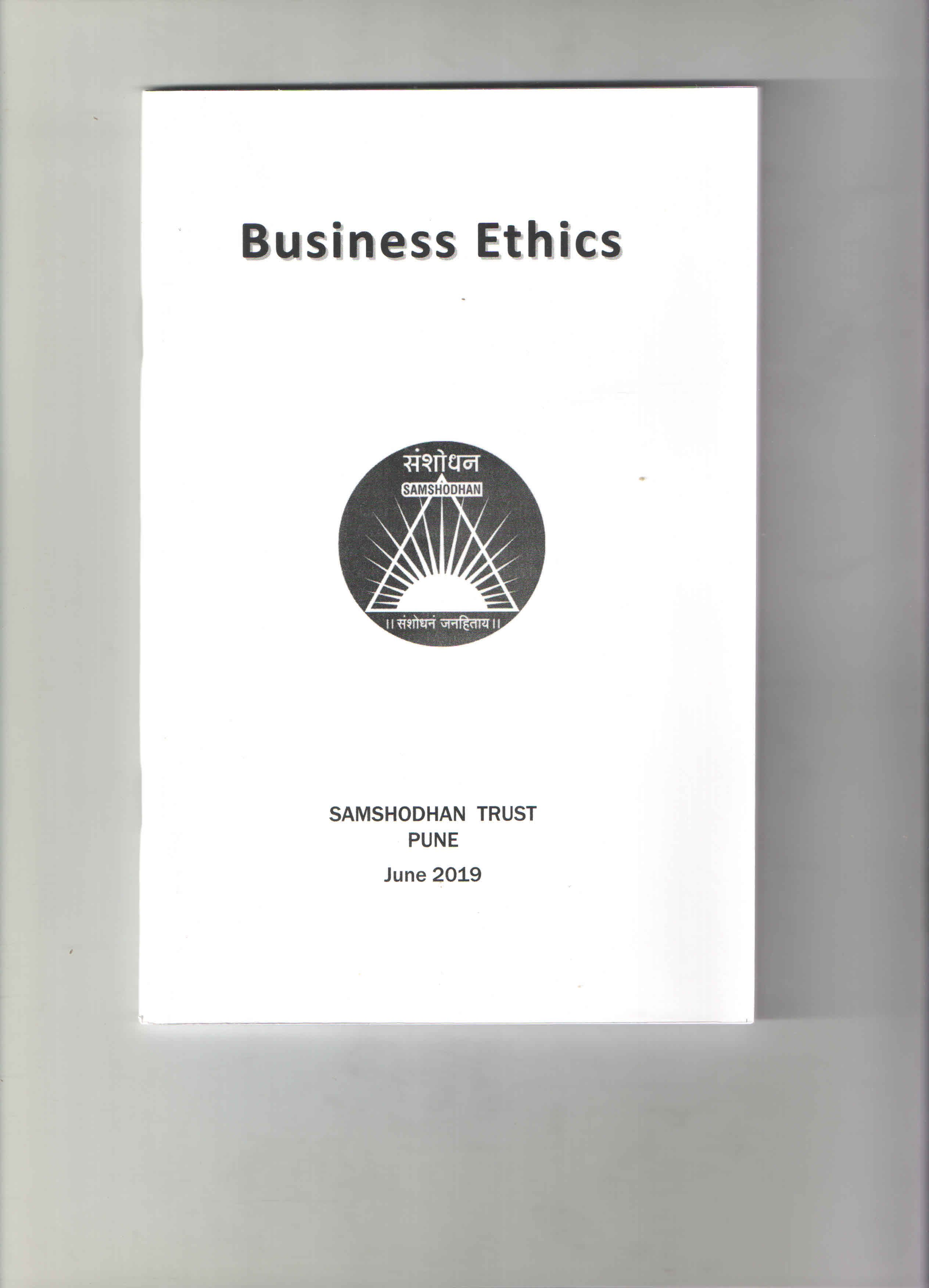BUSINESS ETHICS

Collection of articles on the subject of Business Ethics published as a monograph
Written by Mr. Shashi Sharma (PGP 1973)
Reviewed by Mr. Ramaswamy Thanu (PGP 1966)
‘Small is beautiful’. This small monograph, while reviewing, reminded me of a famous verse of Adi Sankara, who tells his disciple “I will tell you what has been said in crores of books in half a sloka, the concept and greatness of the Supreme Self”. Prof. Shashi Sharma has condensed the core of Business Ethics, in a book of 64 pages. He has done research by examining material from journals intensively. He supports his conclusions with examples of live situations highlighting unethical business practices, lack of ethical behaviour, bribing, the current state of business ethics, deception as an accepted practice, citing the cases of Enron, Satyam and Lehman Bros. cheating in banking, sports including cricket and football. He has surveyed a few organisations to confirm the prevalence of unethical practices and their nature, the justifications some CEOs offer for being unethical as if it is a virtue for business success. At the same time, he has identified some exemplary cases of business honesty where the top executives have never compromised their principles of ethical conduct under great pressure and sacrifice.
At the individual level, he has illustrated unethical behaviour by referring to traffic violations, violating banking norms disregarding personal values and scrupulous adherence to utilitarian logic.
Prof. Sharma has expressed concern for the safety and needs of future generations and suggested various practical measures which could help to make the world a better place to live. Such actions include compliance to ethics and ethical regulations, drawing hints from philosophy, basing actions on Dharma (Righteousness), creating a culture of quality etc. He has made useful suggestions for making the MBA program meaningful by introducing Business Ethics as part of the syllabus. Study of real-life cases where organisations and individuals practice ethics in their day-today dealings, is another valuable suggestion to make organisations, big and small, healthy. Notwithstanding these measures, he ventures to suggest various actions to be performed by the individual in his capacity as a citizen. These are: disciplined traffic, ensuring economy in the use of domestic resources like power, cooking gas, water and the like which are within our control and in totality can bring significant savings for the individual and the nation in terms of conservation of energy and resources and pollution free environment.
His suggestions are made with a view to benefit the next generation and unlike those who think of the present generation and care least for future generations, Prof Sharma is very much concerned with the health and energy and water requirements of succeeding generations. Such measures of care and caution are expected to leave a positive impact on climate change. In all the cases he makes the reading interesting and meaningful by giving appropriate examples and illustrations. Further, he emphasises the need for introspection imploring the citizen to ask himself what he can contribute to society. Instead of asking the Government for favour and services he asks the question what a citizen can do for the nation. He supports his conclusions, in some cases, with cost benefit analysis and points out the net benefit that will accrue if the suggestions for conservation of critical resources are sincerely implemented. Instead of making vague recommendations he relies on the tool of rationality and building up of convincing arguments to support his point of view and make an effective presentation of his ideas. Of course, he chooses the target audience of the unban class judging them to make an honest introspection on their ethical sense and behaviour, conduct and potential.
Remembering to maintain a healthy interface between business and government he urges for a positive approach in dealing with ethical aspects of legislation, giving examples in areas like rent control. Finally, he takes up the problem of corruption which is a chronic epidemic and urges the organisations to take a courageous step to take a firm stand and take a never die approach. Giving examples of a construction company which never compromised on its basic principle of honesty and never yielding to pressures and harassment techniques, ultimately going to the extent of closing down the business by never compromising on honesty and quality. This helped to build and improve the positive image of the company before the public by observing patience and perseverance which tamed the corrupt officials who had, of necessity, to seek other sources of private practice.




Sorry, the comment form is closed at this time.